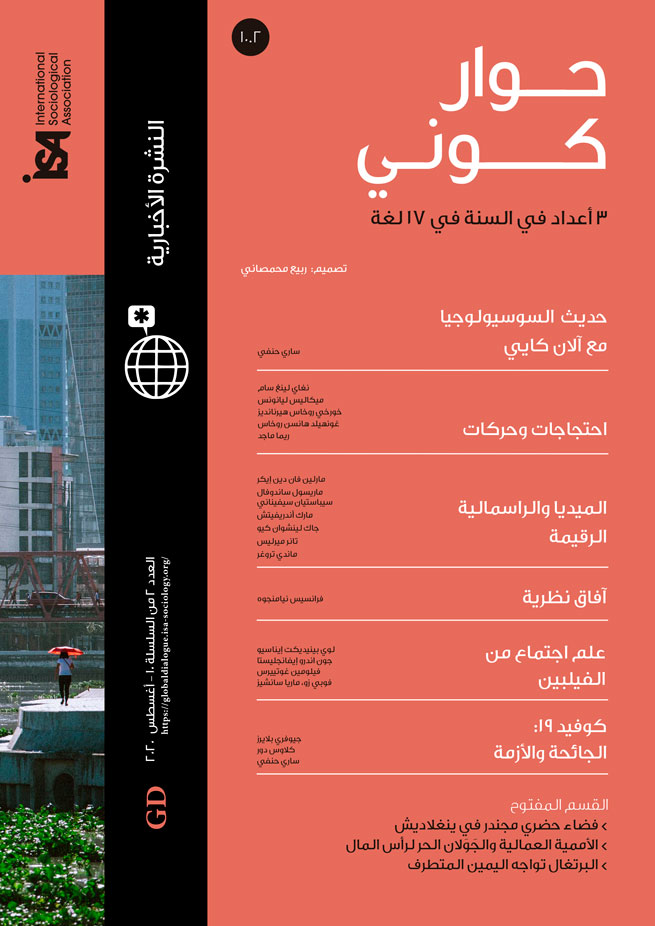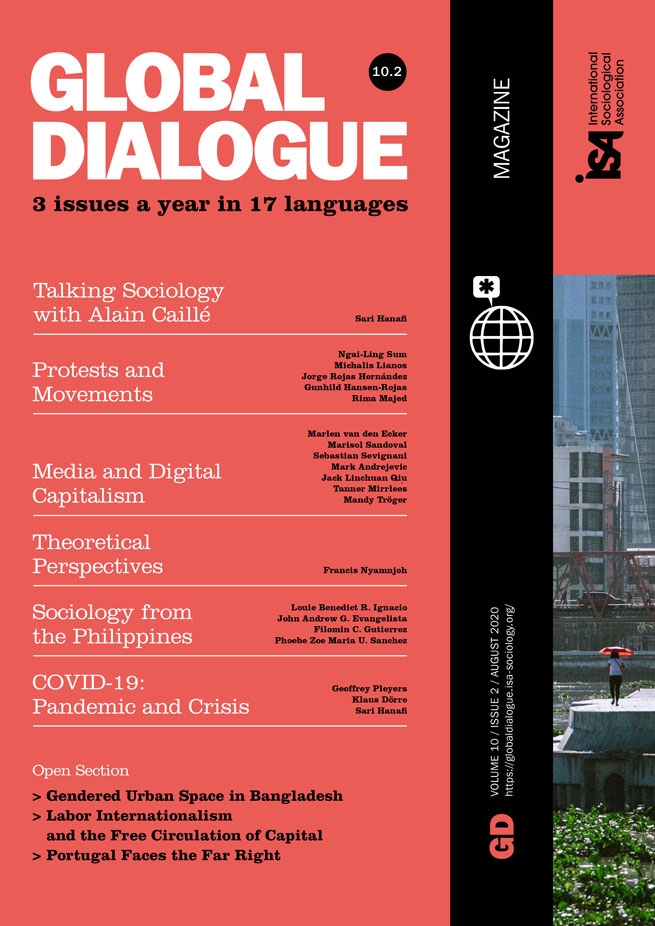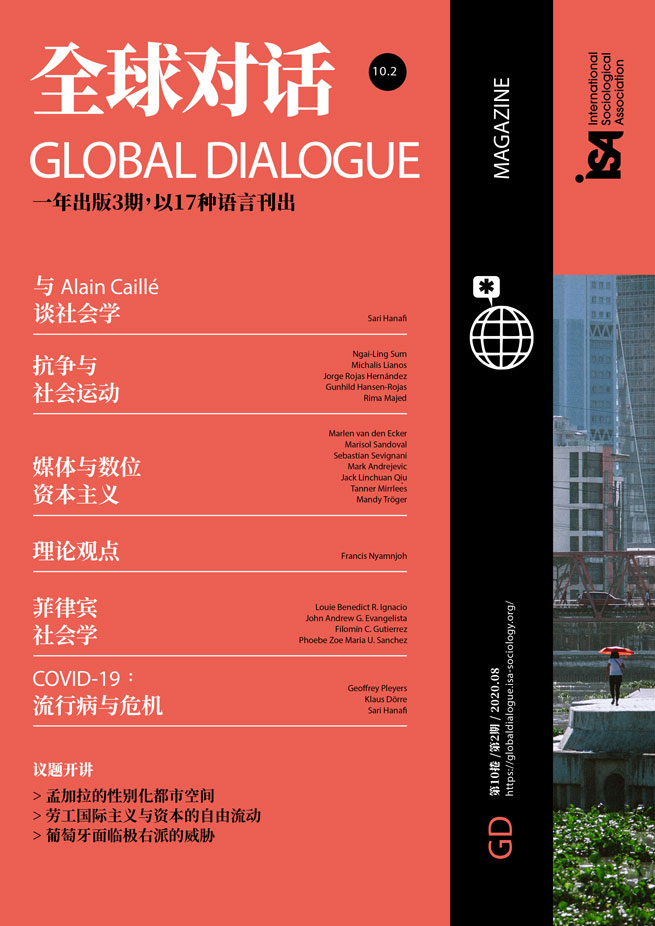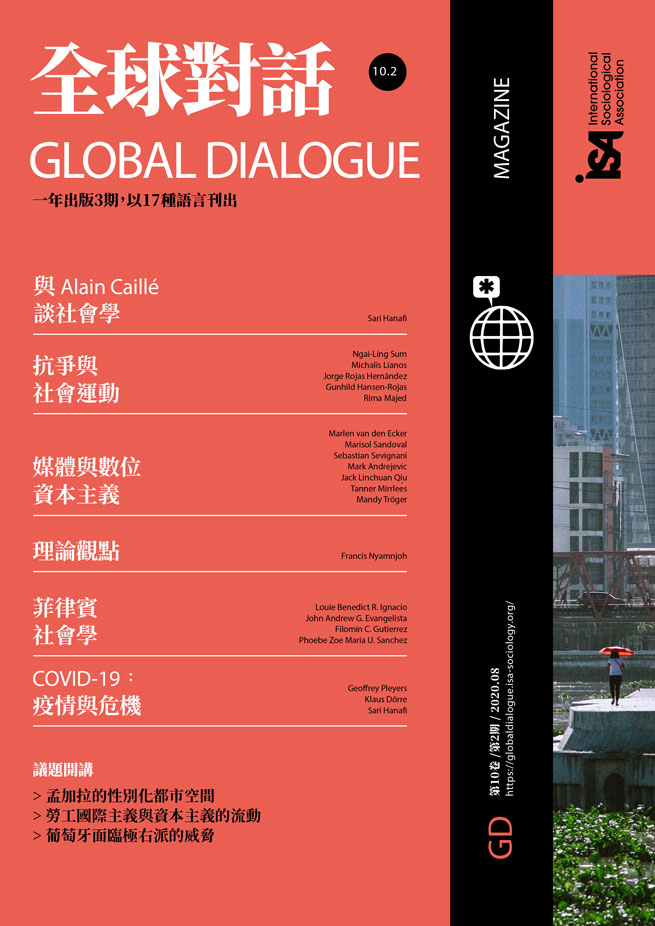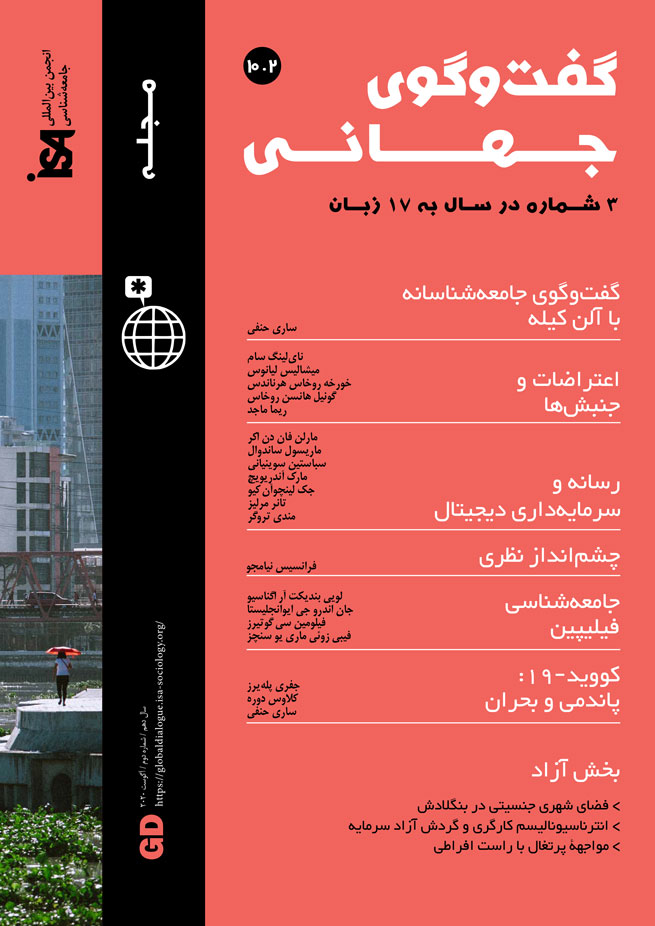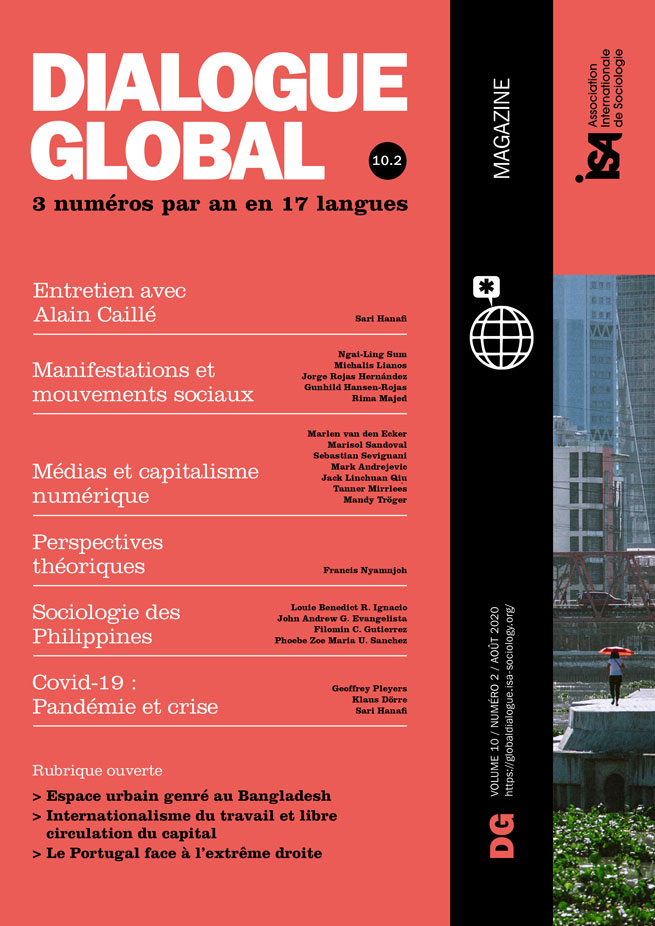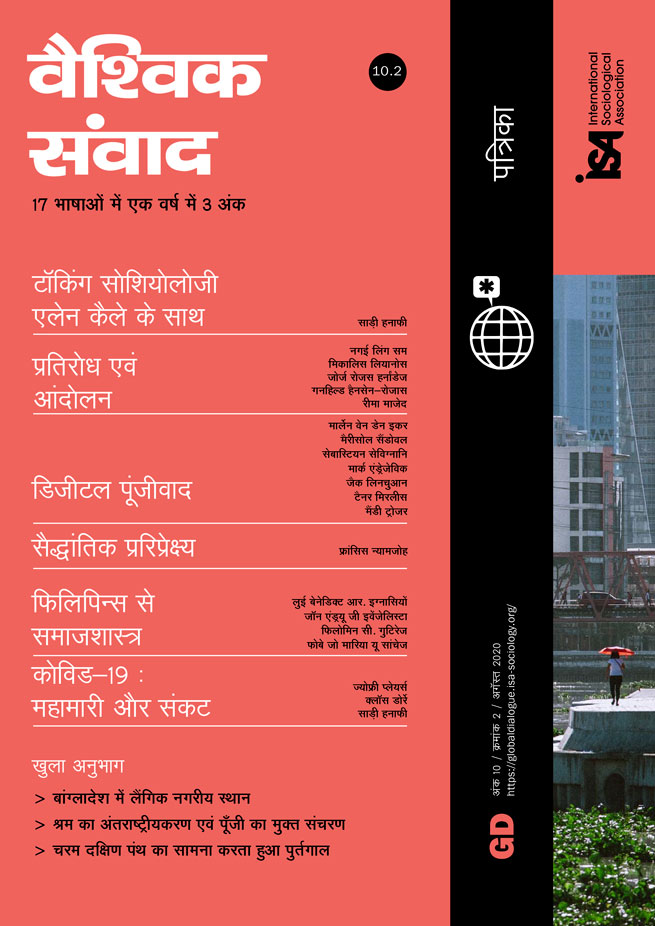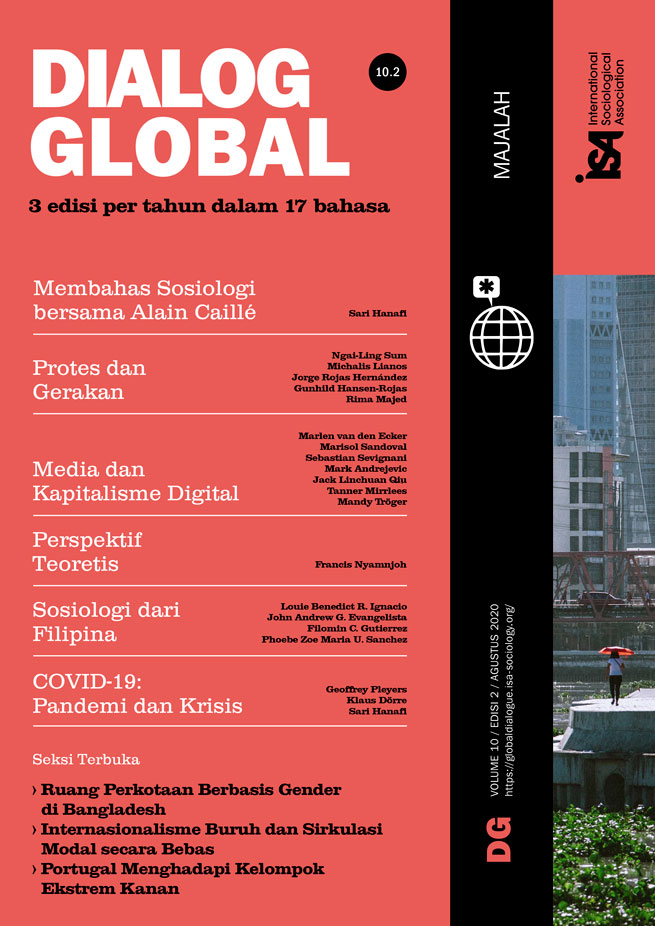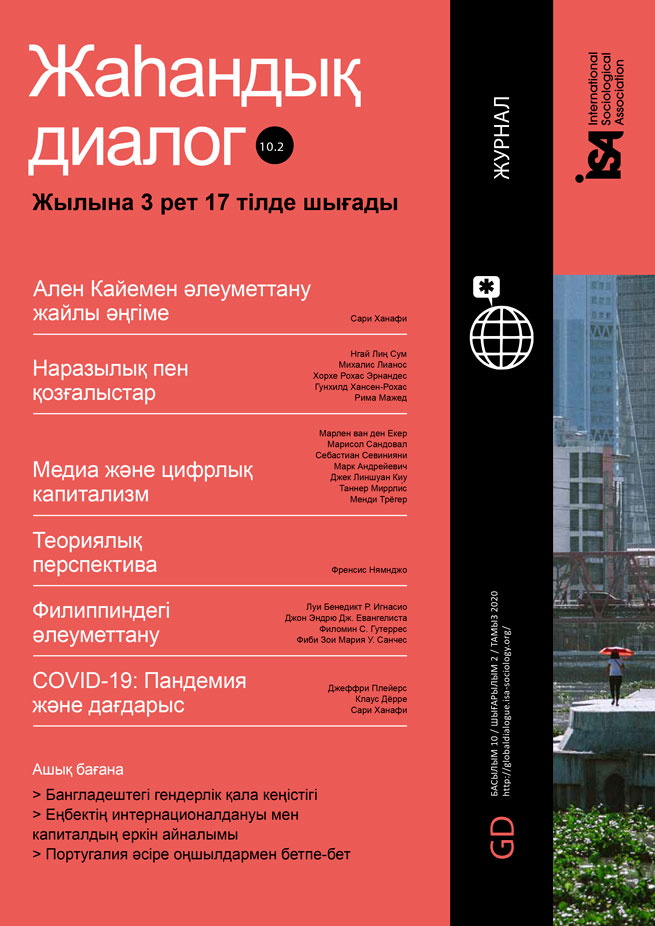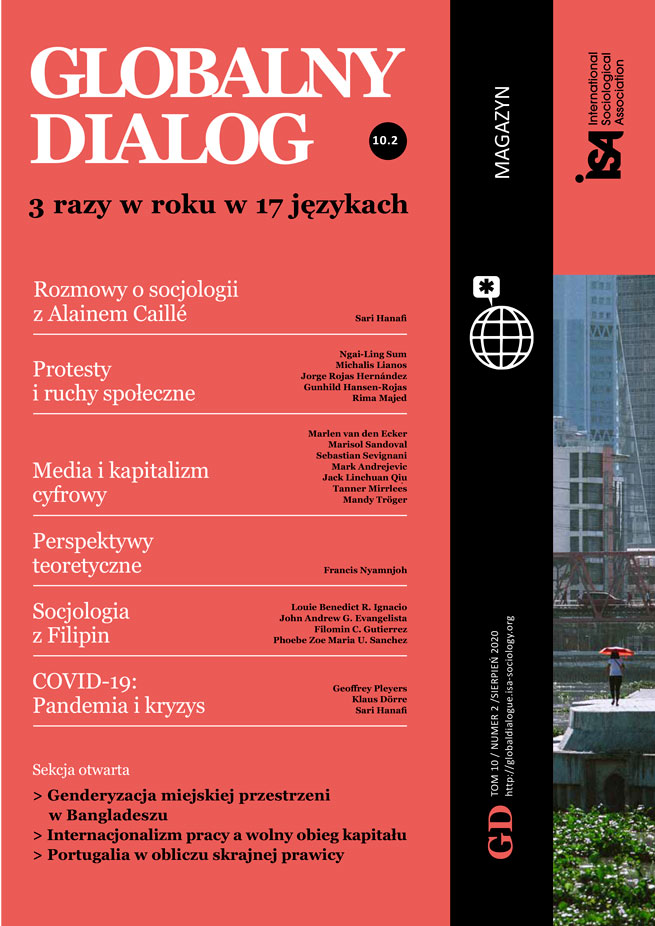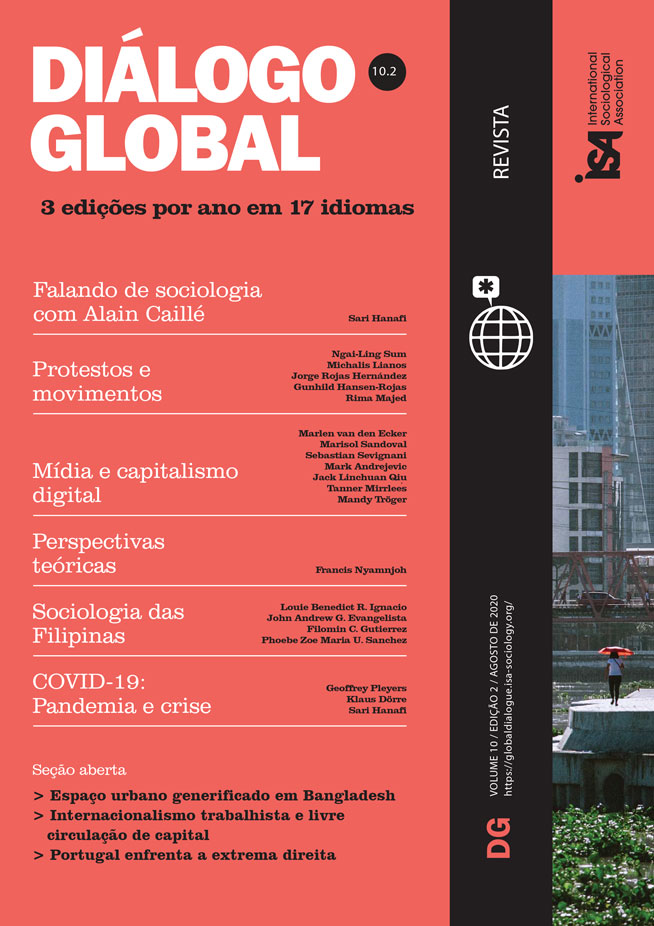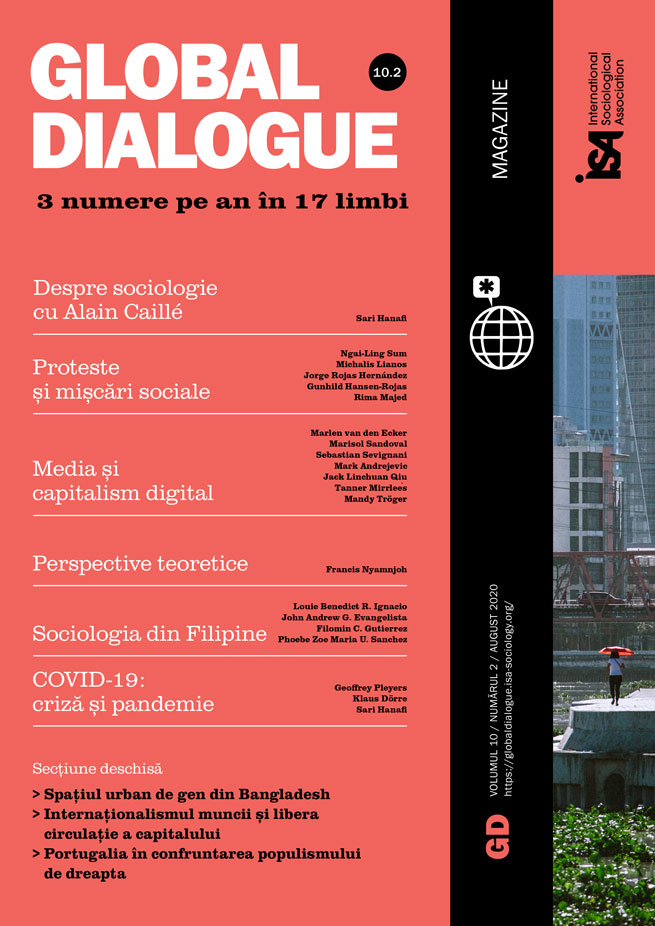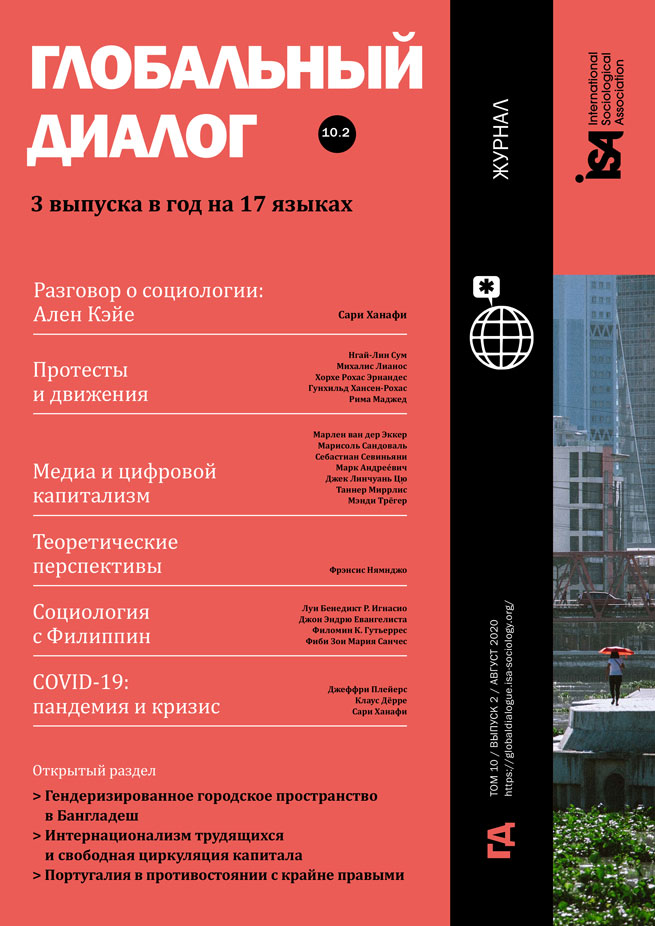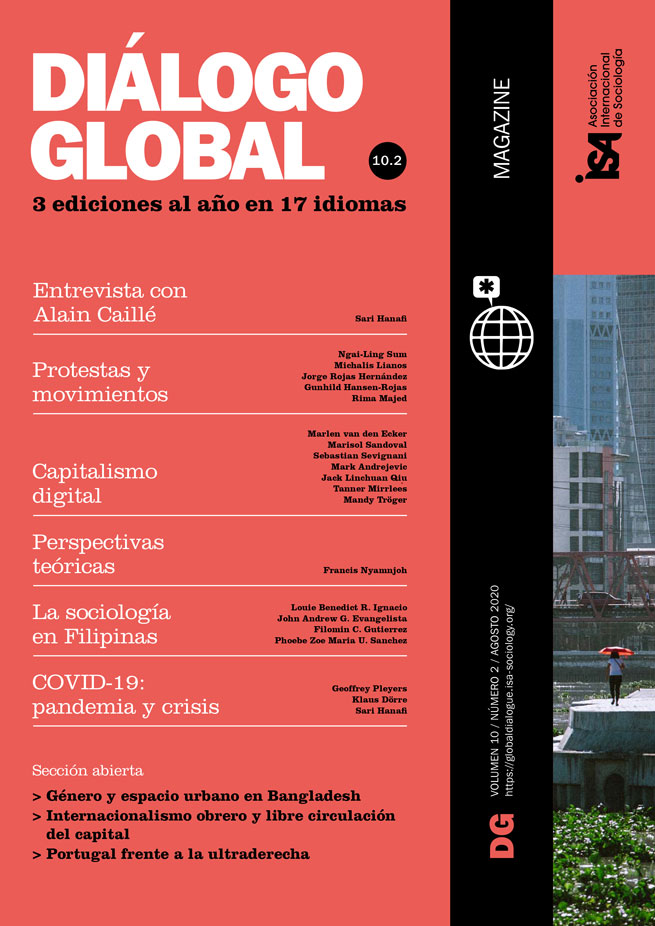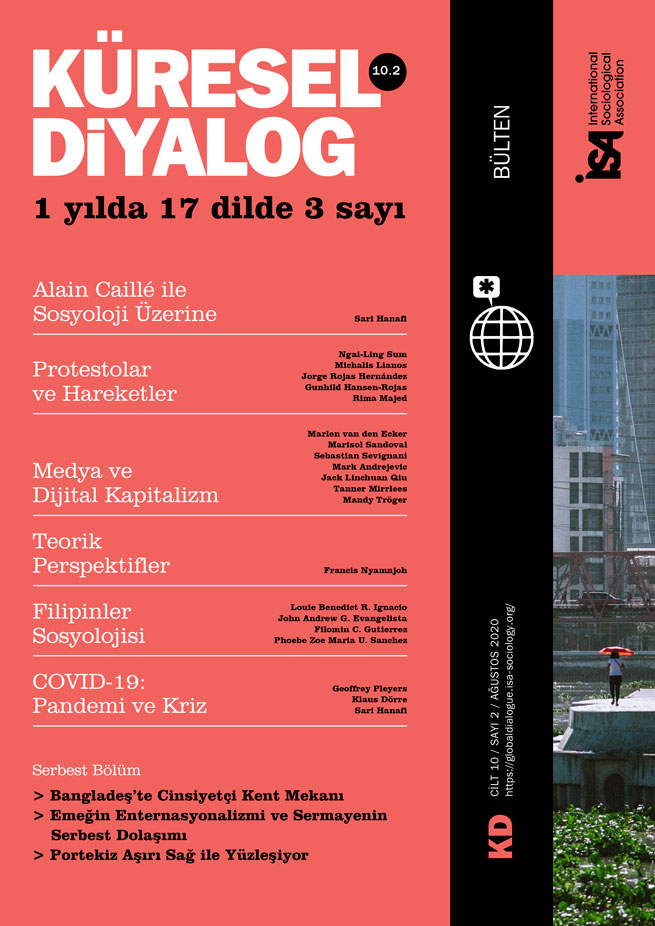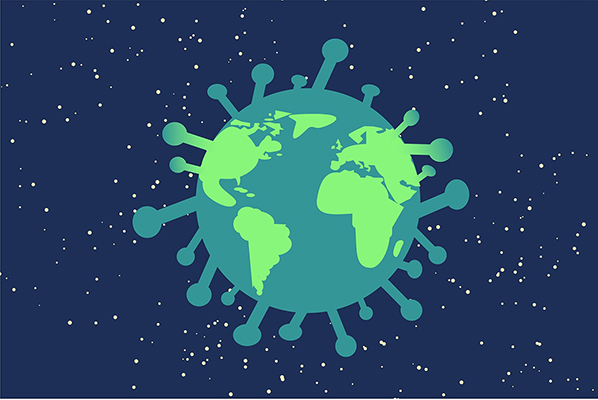Read more about COVID-19: Pandemic and Crisis

Sociology in the Post-Corona World
by Sari Hanafi

COVID-19: First Lessons from the Current Pandemic
by Klaus Dörre
June 26, 2020
The coronavirus has brought science back to the center of public space, even in countries where populist leaders used to delegitimize it. Epidemiologists, medical doctors, and biologists bring us hard facts: the pandemic progresses every day and it is far worse than a “strong flu.” Social scientists have come up with facts that are as hard and unquestionable: while the virus itself may infect any of us, we are deeply unequal when confronted with it. Public health policies and social inequalities matter at least as much as the way our bodies react to it when it comes to the virus’ deadly consequences. Social scientists have shown that the COVID-19 pandemic is not only a sanitary crisis. It is also a social, ecological, and political crisis.
The pandemic has caused a “de-globalization” trend. States have closed their borders. Travels have sharply decreased. Major international events – such as the ISA Forum – have been cancelled or postponed. National governments’ priority is to secure access to healthcare equipment and basic supplies to “their own people.” The social sciences have often followed this path and focused on the national scale. Scholars and experts have conducted national statistical studies, analyzed the differentiated impact of the virus across class and race in their country, monitored their government’s responses to the crisis, and contributed to the national public debate.
This comeback of methodological nationalism is a paradox, as the COVID-19 pandemic is a deeply global phenomenon. It does not stop at closed borders and reveals how deeply interdependent we have become. International collaboration is crucial in dealing with the pandemic. It is certainly true in the fields of medicine and natural sciences to reach a better understanding of the virus itself, improve medical treatments, and come up with a vaccine. International collaboration is equally crucial in the social sciences. We need to learn from other countries and other world regions’ experience of the pandemic. Such a global perspective should not yield to “methodological globalism” and be limited to macro-analyses. To be useful at the time of the pandemic, we have to foster global dialogue among social scientists from different regions, fully embedded in a reality that is at the same time local, national, regional, and global.
While often sidelined by policy makers, the social sciences’ contributions in dealing with the coronavirus pandemic have been as important as, and in many ways complementary to, those of the hard sciences. These contributions have mostly focused on four sets of debates.
1. The pandemic as a social crisis
Social scientists have revealed that, while the virus may infect each and every human being, the pandemic affects us differently and the way the virus is treated is closely connected to social factors. The COVID-19 pandemic exacerbates social inequalities and reveals the social structures, notably in terms of class, race, and gender. An intersectional approach is crucial to understand how the crisis is experienced and why the way we face it is deeply unequal and unfair. In countries or slums without a solid welfare system, the sanitary crisis quickly transforms into a humanitarian crisis, with deadly consequences as national and international humanitarian organizations have not been able to operate as usual.
2. COVID-19 governance
A second set of contributions analyzes the way policy makers and political regimes deal with the outbreak. Nation-states have imposed themselves as the main actors in charge of dealing with the pandemic. International institutions have vanished in the global crisis, including the UN and the European Union. The pandemic has revealed the strengths and limitations of national political systems. The lack of efficiency of a national government or reiterated discourses by a state leader mocking the pandemic and delaying lockdown measures have resulted in hundreds of additional deaths. Confronted with the pandemic, each government has set its own necropolitics. Most have failed to provide basic protections against the virus spreading to their healthcare workers. Through their policies, governments give less opportunity for some people to cope with the virus than others, while people who die in elder care homes do not appear in most countries’ public statistics.
The pandemic and the lockdown have transformed the relation between citizens and government. Citizens turn to national governments for protection, care, and guidelines against the pandemic. Many of them accept stronger social control by the state and new surveillance technologies and facial recognition as the price to pay for getting the pandemic under control.
3. How society reacts
A third set of contributions analyzes the way individuals and civil society handle the crisis. Sociologists explore the deep impacts of the lockdown on people’s lives, subjectivity, and social relations. Intergenerational relations have taken new shapes and meanings. Digital technologies have taken on a major role in maintaining social relations. Social distancing measures have put solidarity at risk and often shrunk the limits of the community within which it takes place. While new networks of solidarity have emerged in neighborhoods and cities, we also witness the limitation of solidarity to closed national communities or to families.
4. Will a new world arise out of the crisis?
The fourth set of analyses deals with the longer-term impact of the pandemic. As a global crisis, the COVID-19 pandemic has opened horizons of possibilities and may be an opportunity to reshape the world in a different way. Many social scientists stress the need for a world more sensitive to human beings, care, and social inequalities, and with stronger public healthcare systems. However, the crisis may also pave the way for other societal models. So far, increased competition has prevailed over new solidarities in the management of the crisis. Massive economic help packages have focused on rescuing national corporations rather than on strengthening public healthcare services. The pandemic may also pave the way for a new authoritarian era, with biopolitics grounded in new technologies.
The way humanity will overcome the COVID-19 pandemic will depend on medicine and sciences, notably to find a vaccine. It will also rely on the way society, policy makers, and citizens deal with this crisis and sow the seeds of the world that will come out of it.
Geoffrey Pleyers, Catholic University of Louvain, Belgium, ISA Vice-President for Research, past president of ISA Research Committee on Social Classes and Social Movement (RC47), and member of ISA Research Committees on Sociology of Religion (RC22), Sociology of Youth (RC34), and Social Movement, Collective Action and Social Change (RC48) <Geoffrey.Pleyers@uclouvain.be>
This issue is not available yet in this language.
Request to be notified when the issue is available in your language.
If you prefer, you can access previous issues available in your language:
